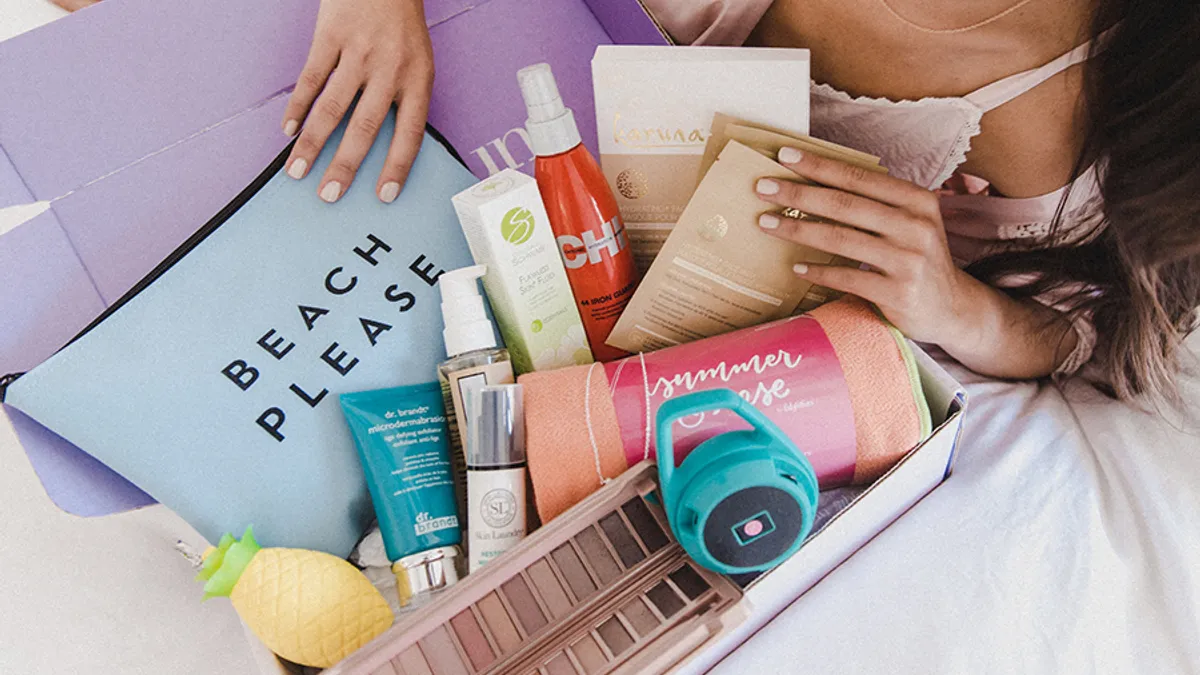Dive Brief:
- As subscription services shift their strategies, a new report from PipeCandy and Rodeo predicts that as many as 75% of DTC brands will have a subscription-based offering by 2023. However, among the risks they face in doing so are customer acquisition cost, churning and cancellation, funding and subscription fatigue.
- On average, DTC subscribers tend to be urban women, between 25 and 44 years of age, earning a salary between $50,000 and $100,000 and living on the East Coast, the report found. The typical subscriber also frequently shops with Amazon and relies on its product reviews.
- The report estimates that the U.S. comprises 47% of DTC subscriptions, followed by Europe (21%) and China (14%). In 2020, the gross merchandise volume of the monthly subscription box segment spiked by 80% compared to the previous year, but the GMV of subscription boxes is expected to decline as the economy normalizes from the pandemic.
Dive Insight:
What is catalyzing the growth in DTC subscription services? The report attributes the DTC subscription boom to Gen Z and millennial shoppers who have begun earning money, especially affluent consumers in urban areas that prefer automated purchasing. On the brand side, the report attributes the growth to platforms like Shopify, ReCharge or Rodeo making it easier for brands to establish their DTC subscription business.
In a 2019 interview with Retail Dive, Katia Beauchamp, co-founder and CEO of Birchbox, said that the subscription service aimed to reach new customers who aren't beauty enthusiasts but are seeking affordable samples. And after being slow to tailor its products for its subscribers, Katie Echevarria Rosen, co-founder and editor-in-chief of FabFitFun, told Retail Dive in 2019 that the subscription service now uses customer data to personalize its subscription boxes for its diverse customer base.
Amid the COVID-19 pandemic, both Birchbox and FabFitFun underwent significant operational changes. After successfully piloting customized subscription boxes, FitFabFun allows annual members to choose each item in their box, and seasonal members can select up to four extra products (one per box) for every season. Meanwhile, following its $45 million acquisition by FemTec Health, Beauchamp became Birchbox’s strategic adviser and the company relaunched with personalized skin and healthcare products.
Though subscription boxes successfully connected products with new customers, these services began to decline in the months leading up to and during the COVID-19 pandemic, begging the question of whether subscriptions were a viable business model long term. In February 2020, Birchbox laid off a quarter of its global staff as part of its plan to shuffle its staff location and reduce redundancies. Nordstrom called it quits on Trunk Club this year after acquiring the subscription startup in 2014. Earlier this month, Stitch Fix CEO Elizabeth Spaulding announced that the company had cut 15% of its salaried staff, exciting economic uncertainty and recent business momentum behind the decision to review the business.















